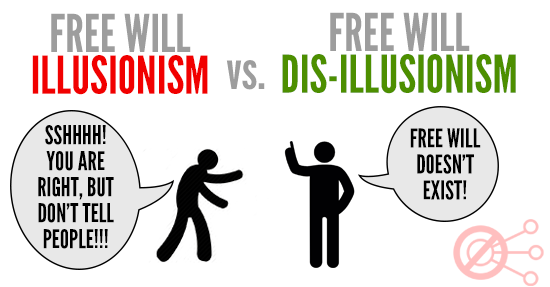In this passion blog I am going to be discussing whether free will is an illusion. Some argue that humans simply interpret the feelings and actions that arise as a result of unconscious brain activity. As a result, there is nothing we can do about these feelings because they are a direct product or processes outside of our personal control. We instead experience control over our personal interpretations to our feelings or actions. On the other hand, researchers suggest that just because neurons are activated before we become aware of our decision doesn’t mean that we are controlled by our brain. Current technology cannot differentiate between unconscious and subconscious thought, and therefore doesn’t define our decision making ability (Gantt).

While I agree that our feelings arise as a result of our actions I do not believe that they are completely out of our personal control. Neuroscience appears to have confirmed that unconscious processes drive our every action and that free will is nothing more than an illusion. In 1999, Benjamin Libet demonstrated that unconscious neural activity precedes conscious intent. Using an EEG, he discovered that there was a readiness potential before they were conscious of their intent to move their wrist. As a result, he believed that unconscious intentionality preceded conscious intention, but did not object to the existence of free will. The consciousness can still accept or reject an unconscious process. Recent studies using an functional MRI suggest that unconscious roots of our decision begin early and are completely predetermined before consciousness can begin. Despite this, I believe our subconscious thought plays a role in our actions. Currently, neuroscience lacks the technical sophistication; the research fails to define the border between unconscious and subconscious acts. Brain activity cannot simply determine our choice before we are aware of making it. While it is true we are sometimes influenced unknowingly by our environment, we are still able to consciously deliberate the repercussions of our actions and make them as a result. In addition, our ability to willfully distract yourself from a temptation and our implementation intentions are crucial for our decision making. In a recent experiment at Georgia State University, neuroscientists were able to pick up on everything the participant would do before the conscious decision. Despite showing the free will doesn’t exist, most participants believed that the neuroscientists were simply able to read brain activity and as a result were able to predict the participants actions (Gantt). Until neuroscience is able to explain consciousness it is going to be impossible to tell whether free will doesn’t exist. As a result, I believe free will exists.

https://onlyfreedommatters.com/free-will-vs-determinism/
In my own life, it would completely change my moral and ethical ideas if it was an allusion. I would believe that my actions were simply not my choice and as a result, I would just provide excuses for the way I behaved instead of changing my actions. In addition, it would completely change my opinion of morality as people’s choices would be deemed predetermined. As a result, the concept of morality would not exist. As a result, it is very difficult for me to even begin to accept the idea that free will may be an illusion. It would completely change the way I would act. How would you feel if you knew free will did not exist?
Gantt, Edwin E. Taking Sides: Clashing Views on Psychological Issues. McGraw-Hill Education Create, 2018.
I believe that quantum mechanics dictates that free will certainly exists. Because superposition collapse occurs only upon human observation of a certain state or configuration, consciousness is very well a natural facet and not merely a pseudoscientific conception. If the universe were purely deterministic, probabilistic superpositions (verified by experimentation) could not exist; in reality, however, uncertainty is ubiquitous. It is difficult to conceptualize a predetermined “program” for the universe dictating every sub-atomic disturbance at every moment in time; for example, is there really a “law” embedded in nature that asserts I will type “&” here instead of any other character (or no character at all), or is my typing an ampersand a decision based solely in my consciousness? This is why I do not endorse the “computer program” model of the universe with God as the “programmer.” Rather, I believe that God is the author of the laws of physics which inherently give rise to life, consciousness, and the free will to deviate from any perceived determinism. The universe, consequently, must be analog (not digital) in design, in spite of the Planck length that constitutes the notion of space “pixelation.” That is, humans can both literally and figuratively make a dent in the universe.
Wow, I’ve honestly never thought about this. Like if we follow a certain diet, a certain religion, a certain political affiliation, etc. does that count as free will? Is it free will because we’ve chosen to be a part of these institutions despite the constraints these institutions provide? Like as a Christian, the Bible said God gives us free will, but yet is our Master. So is that still free will?
I agree that we are simply under the illusion that we have free will because the boundaries placed by society restrict it.
I definitely believe free will is a thing. I think having the ability to decide what to do regardless of if its right or wrong is exactly that. Even though we have institutions which place rule on us, we don’t have to follow those rules and often time people don’t ad are willing to deal with whatever consequence or simply getting away with whatever it was.
This is such a deep concept that I believe has so many loop holes. I am not sure where I stand on this.